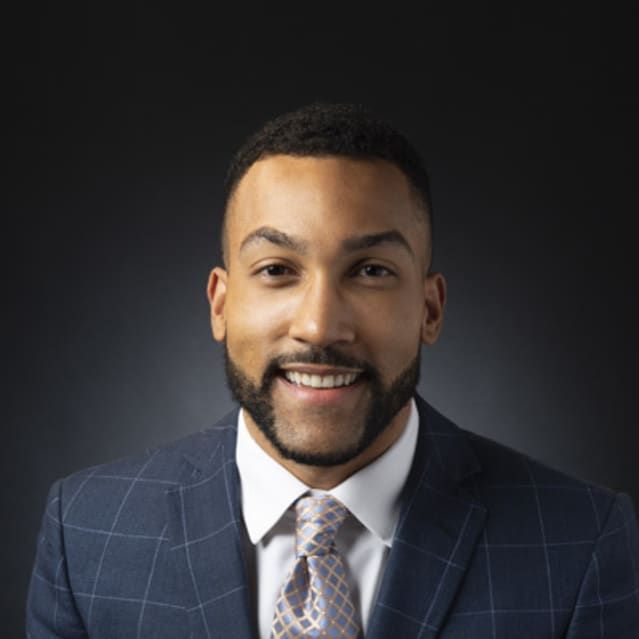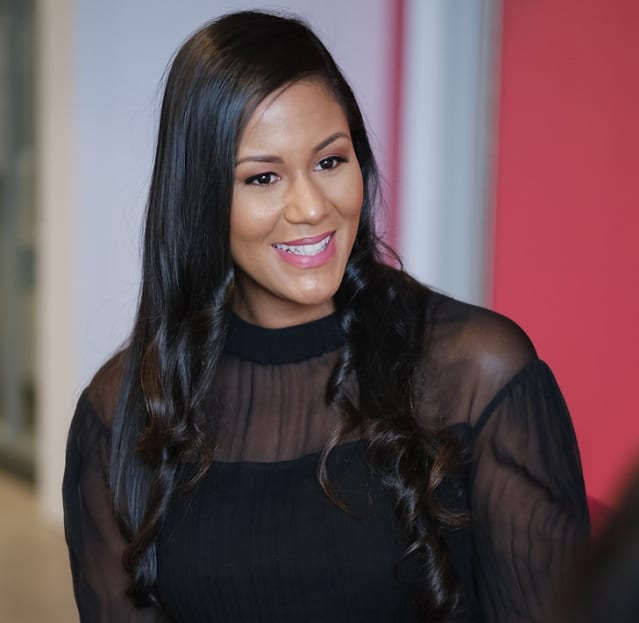7 Black financial influencers you should follow, and what they say about buying a house, quitting your job, and investing in crypto
This article is reprinted by permission from NerdWallet.
The investing information provided on this page is for educational purposes only. NerdWallet does not offer advisory or brokerage services, nor does it recommend or advise investors to buy or sell particular stocks, securities or other investments.
One of the easiest ways to manage your money better this year is to hit the follow button on some finance influencers. Without having to do much work at all, you’ll get a regular dose of personal finance know-how in your social media feed, email inbox or your queue of podcasts.
We talked to some of our favorite Black financial pros about the Great Resignation, buying a house in a competitive housing market and whether investing in crypto is a good idea.
1. Bola Sokunbi
We asked Bola Sokunbi (founder of Clever Girl Finance) what advice she’d give to job hunters:
“While you look for work, even though your income might be limited right now, one thing you have control over is crafting a financial plan for savings, debt repayment, investing, etc. You can also spend this time while you look for work to focus on budgeting and managing the money and resources you have available to you now. Don’t be afraid or ashamed to work below your skill set or for less pay for a temporary period of time, if you need to have income coming in right away.”
2. Dasha Kennedy
Dasha Kennedy (The Broke Black Girl) said people should embrace remote opportunities, whether that’s freelance work or networking online:
“Don’t underestimate your ability to use the skills you’ve learned from your previous employer to earn income as a freelancer.
“If you are still seeking full-time employment, continue to network remotely. I believe that the future of work is going to be virtual. The current employment climate has forced many companies to find talent in unconventional ways such as social media, virtual events and online job fairs.
“There’s currently a wave of people using their transferable skills to switch careers and go into well-paying, remote-based positions that are the complete opposite of their previous [jobs]. Right now is the perfect time to know when to pivot.”
More: If your job doesn’t give you purposeful work, you owe it to yourself to join the ‘Great Reshuffle’
3. Mandi Woodruff-Santos

Mandi Woodruff-Santos
mandimoney.com
We asked Mandi Woodruff-Santos (of MandiMoney) on what to consider before changing jobs:
“Just because the Great Resignation is happening and a lot of people are quitting, it doesn’t necessarily mean that this is the best time to quit for you.
“You’ve got to sit down with yourself and ask yourself, what is it about this job that is keeping you here? Am I getting paid my market rate? Do I feel like I have a good career progression ahead of me here?
“If the answers are no, then it could very well be time for you to move on. Also, right now, it’s hella competitive. So, if you want to quit right now and start looking for jobs, get ready for a very, yeah, very crowded market. There’s a lot of folks looking right now. It’s not going to be as quick or as simple as it may have been a few years ago for someone looking to jump ship.”
If you do have a job, Woodruff-Santos is a big proponent of taking advantage of your retirement accounts:
“It’s not sexy. It’s not exciting. But for most Americans, especially most working Americans, the 401(k) is it. 401(k) is bae, as I like to say, and not enough people are even looking at their 401(k)s. What am I investing in? Am I maxing it out for the year? That’s what people should be asking themselves.”
4. Michelle Singletary
Michelle Singletary (columnist at The Washington Post) said “feelings aren’t facts,” so if you plan to leave the workforce, leave with a financial plan: “Be sure you know how you can manage your money if you are going to be in between jobs.
“If you’re retiring, please do a retirement budget. And I mean really crunch the numbers. So many people who retire early end up having to go back to work because they underestimated the cost of living, thinking that retirement means you spend less. You’ll still have to eat and probably will eat out. You’ll still want to vacation. You’ll still have housing costs, car repairs, etc.”
Likewise, she said, prospective homebuyers need to budget carefully, too.
“If you are in the market for a house, don’t lose your perspective on what you can afford. Don’t just use the qualifications the lender uses. Yes, on their paper, you may seem to be able to afford that home but they are using your gross income. They may not consider your need to leave room in your budget to save for an emergency fund, retirement or college costs for any children you have.
“When my husband and I shopped for our first home, we didn’t buy as much house as the lenders said we qualified for. We knew we wanted to aggressively save for our retirements — and we have. We knew we didn’t want to take on debt to send our children to college — and we didn’t and neither did they. We knew we wanted to pay off our mortgage before we retire — and we will. We couldn’t have done all that if we got a mortgage that wouldn’t leave much room for those priorities.
“And most importantly, don’t consider yourself a failure if you can’t compete and still have to rent. Don’t listen to folks who say you are throwing your money away. You are not. You are getting something for that rent — a roof over your head.”
5. Kenneth Chavis IV
Kenneth Chavis IV (senior wealth manager at LourdMurray) said housing prices will just keep going up. “If you rent and plan to do so for a while, make sure you factor in future rent hikes into your budget and spending plans. Depending on the city you live in, your rent may increase 10-20% on your next lease, so you will want to be financially prepared for this reality.

Kenneth Chavis IV
LourdMurray
“For those that are looking to buy a home, owning a home is often much more expensive than people expect, so be sure that the size, location and amenities of the homes you are looking at match your income and budget. If you plan to buy a home more than three months out, it is best to plan for a 5-10% increase in your home purchase price for the same home.”
And Chavis said home sellers aren’t the only winners in today’s competitive marketplace.
“The labor market is very similar to the housing market right now — it’s a historically great time to be a seller! As employees, we are, of course, ‘sellers’ of our skills, time and the like. So, I would advise anyone who is looking for work or considering leaving their current position to be selective and feel empowered to negotiate for exactly what you want, whether it be greater flexibility, more compensation, more paid time off, etc.”
6. Rianka R. Dorsainvil

Rianka R. Dorsainvil
2050WealthPartners.com
Rianka R. Dorsainvil (co-founder of 2050 Wealth Partners) reminds investors that crypto is just one of many ways to reach your financial goals:
“Although the cryptocurrency space can offer a community feel, know that being an investor is an individual sport. First, determine what your financial goals are, and then use investment vehicles that will help you reach those goals.
“Beware of the temptations to ‘get rich quick.’ While cryptocurrency is legitimizing, I advise clients to approach investing with a long view. And I’d suggest having a well-established savings/slush fund before dipping your toe into the markets.”
7. Lauryn Williams
Lauryn Williams (founder of Worth Winning) knows a thing or two about going fast. She is an Olympic medalist in both the women’s 4x100m race and two-woman bobsled. Williams said investing isn’t one of those things that people need to race into:
“I think there is a lot of distracting information on in the media right now about investing, and it can be very damaging to people because a lot of people are working on some foundational aspects of their finances, such as paying down debt and building an emergency fund, and all they’re hearing all the time is, ‘if you’re not investing, you’re not helping yourself, you’re not making your money work for you.’ I think it’s really important that people have a baseline emergency fund in place before they start investing, and then, use the tools that are easy and readily available, like your 401(k).
“I always tell my clients that investing is the moving walkway that helps you get where you want to go. You don’t need to be fancy. You don’t need to be picking stocks. You don’t need to be doing all these different things that the distractors are saying you need to do.”
More about the influencers
Kenneth Chavis IV is a certified financial planner and a senior wealth manager at LourdMurray. Chavis has been quoted in national finance media publications and interviewed on the Black News Channel on retirement planning, investing, tax planning and the economy.
Rianka R. Dorsainvil is a certified financial planner, as well as the co-founder and co-CEO of 2050 Wealth Partners, a virtual, fee-only comprehensive financial planning firm dedicated to serving entrepreneurs, first-generation wealth-builders, and thriving professionals in their late 20s, 30s, and 40s. She also hosts “2050 TrailBlazers,” a podcast and educational platform aimed at addressing the lack of diversity in the financial planning profession.
Dasha Kennedy is the creator of the award-winning financial advocacy group, The Broke Black Girl. As a digital community leader, she provides culturally relevant financial literacy resources to over 70,000 Black women to combat the racial and gender wealth gap. Kennedy empowers her community to take a personal accountability approach toward financial security while she advocates for economic justice on their behalf.
Michelle Singletary writes The Color of Money for The Washington Post, a twice-a-week personal finance column that appears in dozens of newspapers across the country. She is also the author of four books on personal finance.
Bola Sokunbi is a certified financial education instructor, finance expert, bestselling author, speaker, and founder of Clever Girl Finance, a financial education platform and community for women empowering them to achieve financial wellness and live life on their own terms.
Lauryn Williams is a certified financial planner and founder of Worth Winning, a virtual, fee-only financial planning firm. Williams and her team help young professionals get the answers to the financial questions that matter most to them. She also hosts Worth Listening, a podcast encouraging listeners to start having financial discussions and take control of their money stories.
Mandi Woodruff-Santos is an inclusive wealth-building advocate, career coach and co-host of the popular podcast Brown Ambition. She’s a regular contributor to Yahoo Finance Live. Follow her on Instagram and TikTok @mandimoney.
More From NerdWallet
Alana Benson writes for NerdWallet. Email: abenson@nerdwallet.com.
Elina Geller writes for NerdWallet. Email: egeller@nerdwallet.com. Twitter: @themissmiles.
Meghan Coyle writes for NerdWallet. Email: mcoyle@nerdwallet.com. Twitter: @inkwaves.
Rosalie Murphy writes for NerdWallet. Email: rmurphy@nerdwallet.com.



